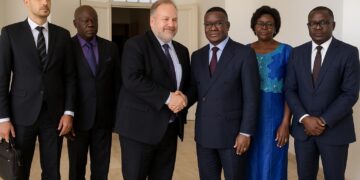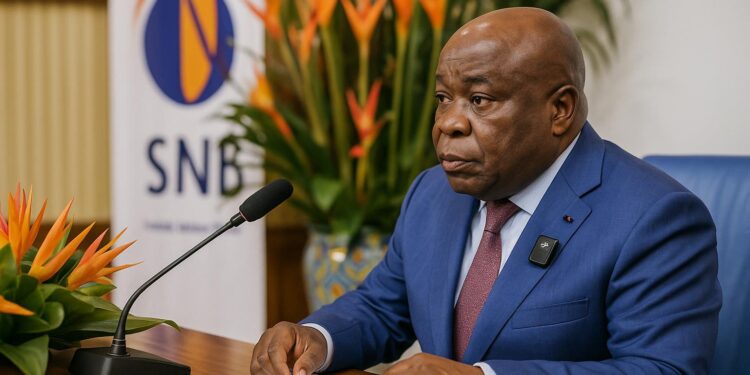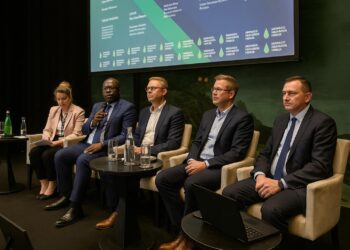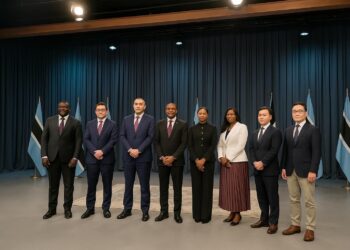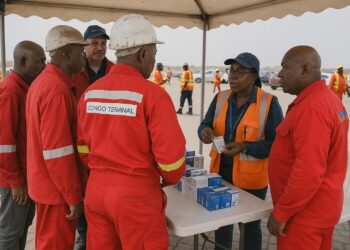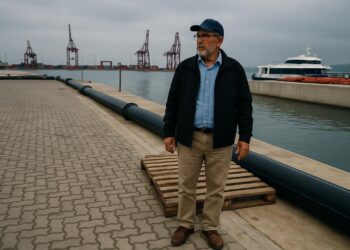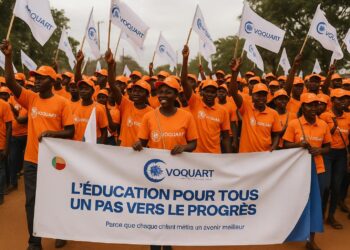Continuity at the Helm of SNPC
A presidential decree dated 16 October reconfirmed Maixent Raoul Ominga as managing director of the Société nationale des pétroles du Congo, extending a tenure that began in 2018 and has already spanned a period of operational consolidation and cautious portfolio expansion.
The decision follows the approval, on 7 October in Oyo, of new corporate statutes, signaling the executive’s wish to anchor the national oil company in a governance framework aligned with emerging energy priorities while preserving institutional memory.
Government sources highlighted the need for stability as upstream projects mature; investors likewise view leadership continuity as an important risk-mitigation factor at a moment when global hydrocarbons markets remain volatile and capital allocation cycles tighten.
Revised Statutes, Broader Mission
The updated statutes, endorsed by the Council of Ministers, officially expand SNPC’s perimeter beyond traditional oil and gas into renewable energies, allowing the firm to invest, operate, and potentially trade in solar, biomass, and other low-carbon assets domestically.
This legislative shift responds to national objectives of diversifying the energy mix and echoes continental commitments under the African Union’s Agenda 2063, without undermining the revenue base that crude exports still provide to the Congolese budget.
Analysts note that the text also clarifies reporting lines, reinforces audit committees, and instills performance-based metrics, giving Ominga additional tools to pursue operational excellence while meeting stakeholders’ growing demands for environmental, social, and governance transparency.
A Five-Year Mandate Built for Accountability
For the first time, the director general’s term is set at five years, renewable, a horizon deemed sufficient to steer multi-billion-franc projects from feasibility to commissioning and to measure their macroeconomic impact with accuracy.
The defined tenure is designed to align managerial incentives with state planning cycles, providing coherence with the medium-term expenditure framework under preparation by the Ministry of Finance and easing dialogue with international partners.
Market observers expect mid-term scorecards to track cash flow generation, reserve replacement ratios, and renewable capacity additions, metrics that could shape future renewals and influence sovereign credit perceptions.
From Ledger Sheets to Boardroom Strategy
A graduate in accounting and management from Montpellier’s Institut supérieur de l’entreprise, Ominga entered SNPC in 2001 and methodically rose through finance functions, serving as deputy director general for finance and accounting before assuming full leadership in 2018.
Colleagues describe him as a meticulous cost controller who nevertheless “speaks the language of engineers,” a profile seen as valuable when negotiating joint-venture terms or optimizing lifting schedules with international operators, according to internal testimonies.
His financial background has underpinned efforts to rationalize procurement, digitalize payment chains, and enhance cash visibility—elements that rating agencies frequently cite when assessing the transparency of state-owned enterprises across Central Africa.
Transition Energy Pillar for National Agenda
By integrating renewables into its mandate, SNPC positions itself as a central actor in Congo’s economic diversification strategy, complementing forestry and mining while cementing Brazzaville’s aspiration to remain a reliable hydrocarbon supplier.
The company has already mapped solar irradiation corridors and is evaluating biomass residues from agro-industrial zones, preparatory steps that could, once approved, feed an investable project pipeline attractive to development financiers.
“Our objective is not to substitute but to broaden,” an SNPC executive stressed, emphasizing that cash flows from mature offshore fields should bankroll pilot green projects rather than jeopardize fiscal stability.
What Stakeholders Expect Next
Investors will watch how the renewed leadership balances dividend policy with capital expenditure, especially in a context where global majors are pruning African portfolios and demanding faster returns on equity.
Civil-society groups, for their part, call for granular disclosure of contract terms and environmental data, arguing that expanded mandates must translate into heightened accountability, a stance the updated statutes appear to acknowledge through strengthened oversight boards.
As Ominga embarks on this five-year journey, the overarching narrative is one of calibrated transformation: preserve the fiscal anchor provided by oil, seed the nascent renewables sector, and demonstrate that institutional continuity can coexist with strategic innovation.








